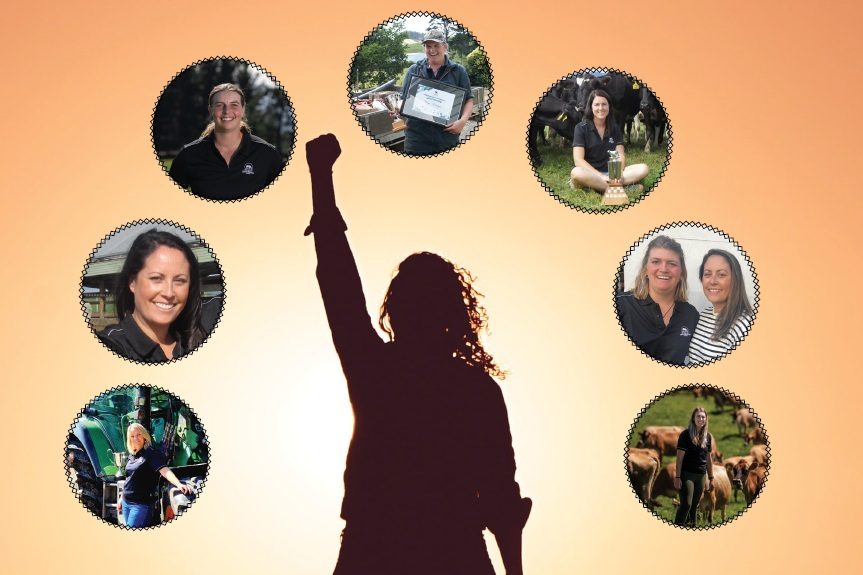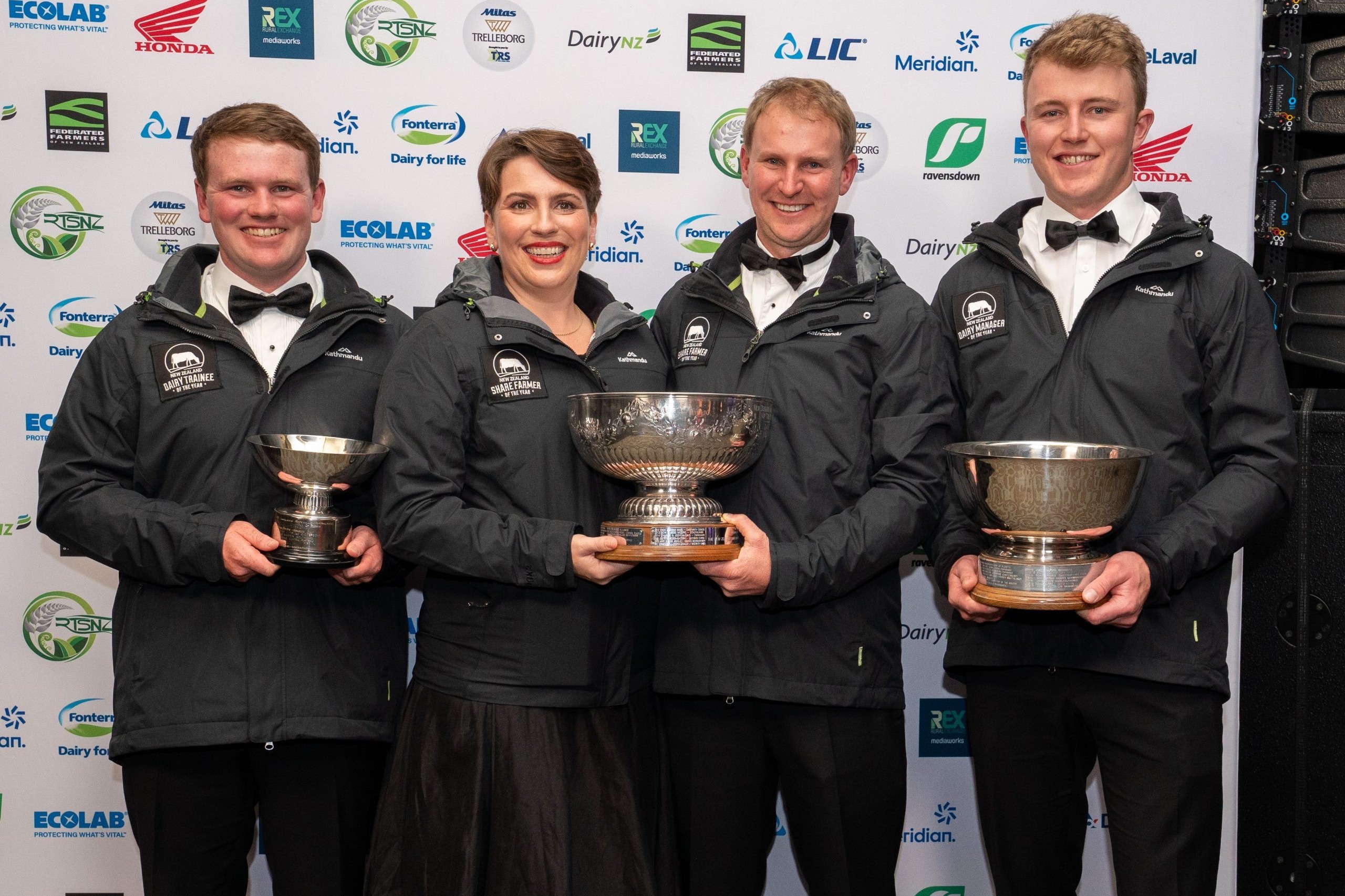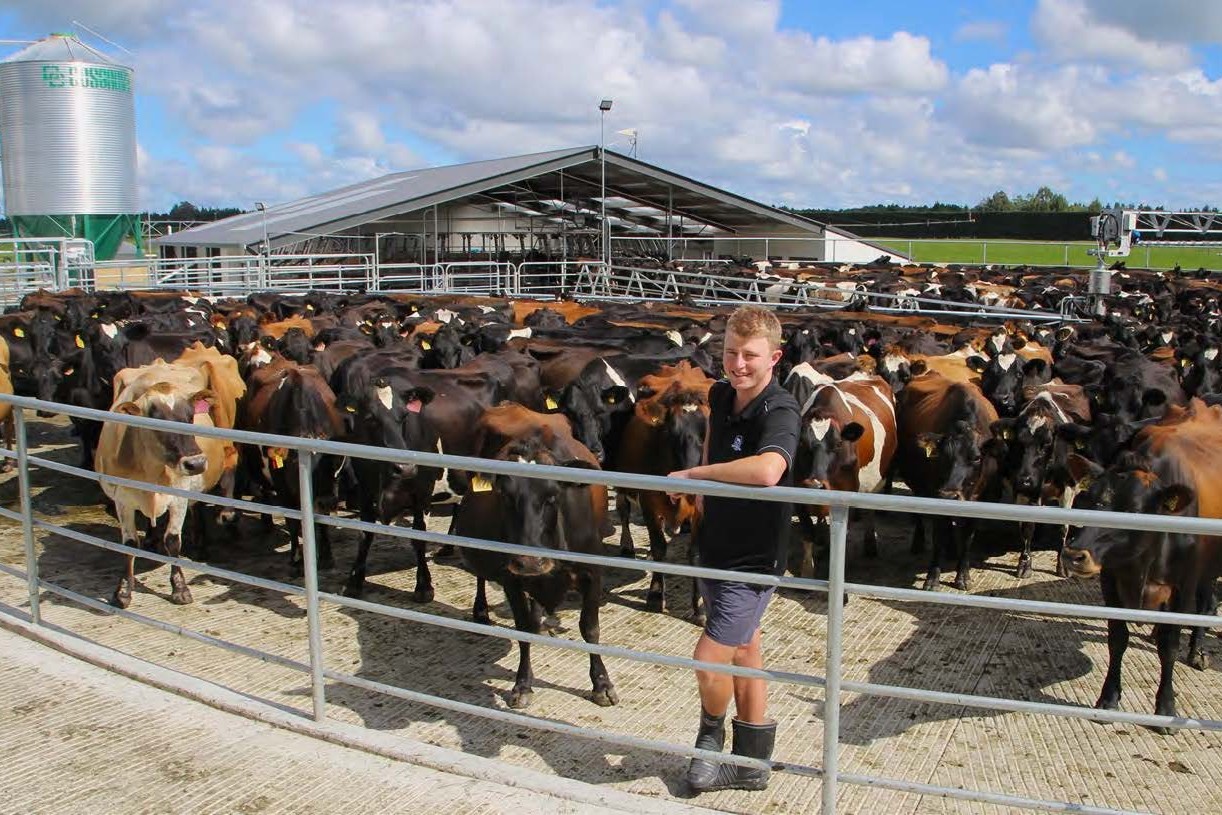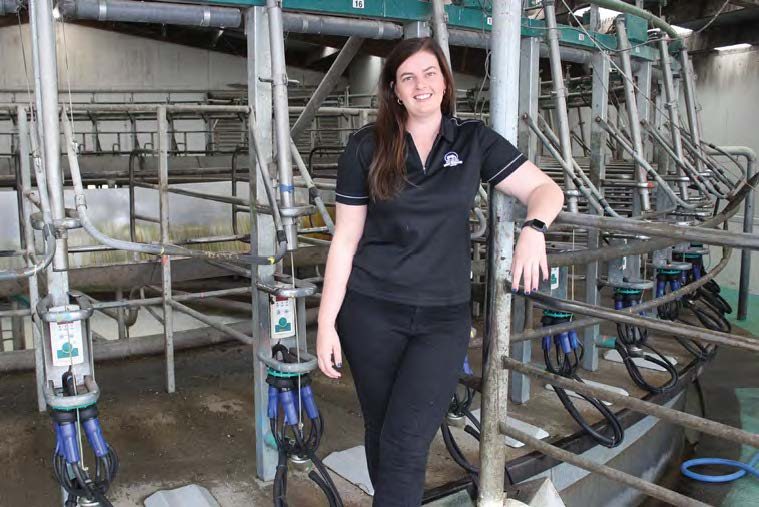Anne Lee
The decision to head south from Waikato and take up a job dairying was a lifechanging one for Stephen Overend.
The 36-year-old is this year’s Canterbury/North Otago Farm Manager of the Year and says having grown up on a small dairy farm near Morrinsville he decided to move to Canterbury at the suggestion of a friend also moving to the region for work.
He took up a job for Peter and Adele King as a farm assistant and hasn’t looked back since.
“It was one of the best things that ever happened to me,” he says.
Spurred on by his friend, farmer and tech entrepreneur Ryan Higgs, who pushed Stephen to back himself, he applied for and got a job at Purata TheLand Farming Group as a 2IC on the company’s 266-hectare Colosseum Farm at Te Pirita.
A few months later he met Kate, now his wife and the couple have a 2½ year old daughter Molly.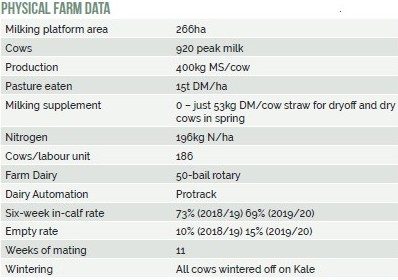
Just two years in as 2IC and he was able to step in to the farm manager role when his boss moved onto another farm within the farming group.
“Things have really fallen into place.
“I was blown away to win this and I’ve got to say I have a phenomenal team, they’re such an asset and without the support of the team I just couldn’t do what I do here,” he says.
Stephen’s enthusiasm for farming and for his people is immediately obvious.
“The farm is the team and the team is the farm,” he says.
Fostering engagement is a strong focus and achieved through good, positive communication via various methods so everyone is always in the loop.
“It’s about giving everyone the knowledge and skills so everyone has everything they need when they need it to be able to do their job,” he says.
He’s an avid supporter and user of Lean management tools which Purata dubs InSynch.
“It’s always evolving so we’re always looking at how to do things better, but by using the systems and processes we’ve come up with we can keep things simple and pretty much stress free.
“We have really good standard operating procedures (SOP’s) and a lot of visual aids so people can see what good looks like.”
He uses online technologies such as Google Sheets and everyone onfarm has access to them. They can see rosters, feed planners which paddocks cows are going to, how much pasture they need to be allocated and any supplement.
“So anyone can jump on their phone and know what’s going on with just about anything, anytime.”
They use WhatsApp to communicate as well as radios and use Trello to keep lists for anything needing to be bought and restocked. Training folders are kept online to ensure people get the skills they need.
“I’m a visual person so having all of those things easily accessible and written down that way makes everything more efficient.”
He’s always looking for improvements and says if something goes wrong onfarm it’s really a learning opportunity but also a signal to him that a process isn’t quite right or people haven’t had the right training. Coaching and training are top priorities so everyone has the skills and resources to do all the jobs on the farm.
It’s a win/win for everyone in that people are challenged and engaged and all jobs get done well no matter who is on deck.
“It’s so important to understand people’s goals too and help them achieve them. If people aren’t learning they’ll go somewhere else.”
Stephen walks that talk. He’s studying a Diploma in Financial Planning Agribusiness Management and holds PrimaryITO Level 3 and 4 in Team Management and Effluent Management.
Colosseum had been a dedicated heifer farm but this season moved away from that policy.
“We peak milked about 1000 heifers every year until this season and I’d gotten used to that as normal so this season has seemed like a breeze.”
They dropped cow numbers to keep a similar comparative stocking rate and this season peak milked 920 cows although based on the amount of silage they made, Stephen says they’ll review that and may lift cow numbers slightly.
“We’re really focused on profit and keeping costs down below that magic $4/ kg milksolids (MS) mark – which we’ll do.
“We’ve aiming to be self sufficient with no bought-in feed apart from 50 tonnes of straw used at dryoff and for dry cows in spring. Otherwise it’s just the silage we make during surpluses over the season.”
It’s fed through early spring before balance date and then in autumn to lengthen the round. The farm is walked twice, sometimes three times a week to assess pasture covers– once by Stephen and sometimes twice by the 2IC.
“It’s something the whole team needs to understand and everyone knows what a 1500kg drymatter (DM) residual looks like.
“We do a lot of work training with a platemeter and a golf ball so they can see what 1500kg DM/ha looks like in the paddock.
“People don’t always get it (residuals) exactly right but I see it as an opportunity to learn and talk about why that happened.”
They have hectare markers on fences so the team can more easily calculate break sizes and know where to put fences up.
“It saves time, helps them learn and makes things more efficient and easier.”
Stephen says the farm is laid out well with the 50-bail rotary farm dairy in the centre and one centre pivot also located in the middle of the farm. It covers 130ha with 50ha of long line sprinklers irrigating most of the remaining area. The effluent pipe is slung under the centre pivot so that whole pivot irrigated area can receive effluent allowing for a reduction in nitrogen use there.
The farm has a no bull policy for mating over its 11-week period and does five weeks artificial insemination using Premier Sires (AI), followed by a week with short gestation length Hereford and then crossbreed. They’ve been using heat detection software for the last two matings and while it worked well in the first season combined with observation, mating results went backwards this season.
Looking to the future Stephen’s focused on building skills and experience in the near term.
“I really love what I do, I am passionate about it. Farm management is a great career.
“I’m also really grateful to the sponsors of the awards and the merit awards and the support they give the industry. It was amazing to win the title and the prizes have been a huge bonus.”
Salem Christian was runner-up in the Dairy Manager category and Hororata farm manager Tessa Goes was placed third.
Dairy manager merit awards
Vetlife Most Promising Entrant – Teresa Goes
Alexanders Chartered Accountants Employee Engagement Award – Stephen Overend
MorrisonAgri Leadership Award – Michael Boston
FarmRight Feed Management Award – Stephen Overend
Fonterra Dairy Management Award – Tessa Goes
DeLaval Livestock Management Award – Salem Christian
PrimaryITO Power Play Award – Stephen Overend
Westpac Financial Management & Planning Award – Salem Christian


